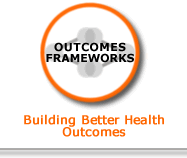Link through the outcomes (4b)
The provision of appropriate services and actions to enable young parents to stay in education, training or employment will contribute to them feeling supported to stay in education, training or employment and having increased access to flexible childcare. This in turn will contribute to greater engagement by young parents in education, training and employment and in the longer term this will contribute to improved health and social outcomes for both the young parents and their children.
Summary
Education/career development and other programmes
-
There is reasonable evidence that education and career development programmes, alongside welfare sanctions and bonus programmes, are effective in improving in education and training. However, the former are more effective and may be more appropriate to the needs of young parents. Neither type of programme had a long-term impact on employment rates.(1)
-
Education and career development interventions and holistic programmes had a positive but non-significant effect on emotional wellbeing and had a non-significant impact on reducing further pregnancy. (1)
-
Holistic programmes address many of the needs identified by young parents; however, the effectiveness of these programmes in terms of improving participation in education, training or employment has not yet been established.(1)
Childcare
-
There is evidence that day care for young children is associated with improved prospects of education, training and employment for mothers, including teenage mothers.(2) The Abecedarian project, an early childhood intervention targeted at teenage parents, was associated with improvements in high school completion, participation in training and employment as well as a reduction in repeat pregnancy. (1, 3)
HIIA notes:
The evidence includes a review of the views of young parents, many of whom are experiencing social disadvantage. Reviews of effective interventions specifically include targeted interventions for young people who are socially disadvantaged.
References:
-
Harden A, Brunton G, Fletcher A et al. Young people, pregnancy and social exclusion: A systematic synthesis of research evidence to identify effective, appropriate and promising approaches for prevention and support. London: EPPI-Centre, Social Science Research Unit, Institute of Education, University of London; 2006.
-
Zoritch B, Roberts I, Oakley A. Day care for pre-school children. The Cochrane Library; 2000, Issue 2.
-
Geddes R, Haw S, Frank J. Interventions for promoting early child development for health: an environmental scan with special reference to Scotland. Edinburgh: Scottish Collaboration for Public Health Research and Policy; 2010. Available from: http://www.scphrp.ac.uk/wp-content/uploads/2014/03/1454- scp_earlyyearsreportfinalweb.pdf (accessed 3 June 2015).
|


